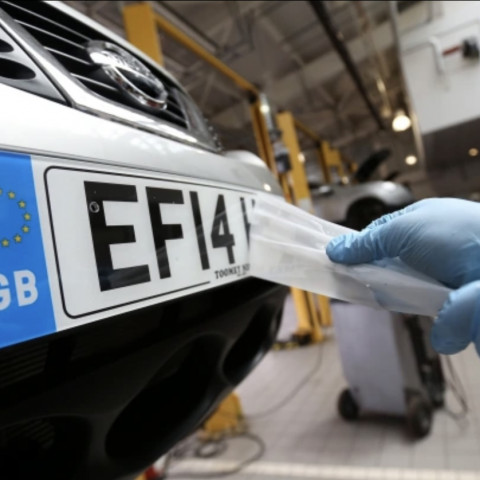The DVLA number plates system needs to be completely overhauled to beat a rise in "car cloning", police have said.
A record number are being cloned to enable people to commit crime and escape motoring fines, the Association of Chief Police Officers says.
More than 40,000 sets of number plates were stolen in 2006, a rise of almost 25%, according to police estimates.
Acpo wants a central issuing body for the registration numbers, and all cars to have tamper-proof plates fitted.
Acpo's Coventry-based Vehicle Crime Intelligence Service says it now has no confidence in the ability of the Driver and Vehicle Licensing Agency (DVLA) registrations & Number plate licensing system to prevent cloning.
The service's Supt John Wake told BBC News: "The registration plate is the first form of identification of the vehicle to the general public.
"I don't have confidence that beyond that you can identify that that vehicle is the legitimate vehicle for that car number plate."
The DVLA is considering forcing all the UK's 1.3 million motorcycles to be fitted with plates featuring electronic tags, which are currently being trialled.
The AA's Paul Watters said the number of cloned number plates was "growing fast".
"It seems to be on a roll and we need to start taking some action to look at the innocent motorist who may fall victim to some of the issues which follow up the theft of a number plate," he said.
"There are different levels of cloning. There is the simple cloning, just stealing a plate to drive into say the Congestion Charge zone or evade a speed camera.
"It ranges up to a higher level which is the car criminal who wants to sell on a stolen car."
Tony Bullock's car was cloned even though his plates were not physically stolen, and he was threatened with prosecution after "his" car was repeatedly caught speeding in Leicester.
He said: "It was horrendous. You are guilty until you can prove you're not. It's the first time that I've thought that English law is on its head."
Metropolitan Police Federation chairman Glen Smyth said the problem has grown because of the amount of camera-based enforcement of traffic offences, which relies on computer records on who owns which car.
A spokeswoman for the DVLA said it had introduced a standard for theft-resistant number plates, as well as having trialled microchip technology to combat cloning.
She added: "The DVLA also regularly works alongside the police to support anti-vehicle crime operations.
